Privacy and data protection
Privacy and data protection are essential for us to live, connect, work, create, organise and more. Governments and companies have long used mass surveillance for control trying to legitimise snooping for health, security or other reasons. The near-total digitisation of our lives has made it easier to control, profile and profit from our attention, data, bodies and behaviours in ways that are very difficult for us to understand and challenge. European data protection standards such as the GDPR are a good step forward but we need more to effectively ensure enforcement and protection against unlawful surveillance practices.
Filter resources
-

NCC publishes a report on tech companies’ use of “dark patterns”
Today, the Norwegian Consumer Council (NNC), a consumers group active on the field of digital rights, has published a report on how default settings and “dark patterns” are used by techs companies such as Facebook, Google and Microsoft to nudge users towards privacy intrusive options.
Read more
-
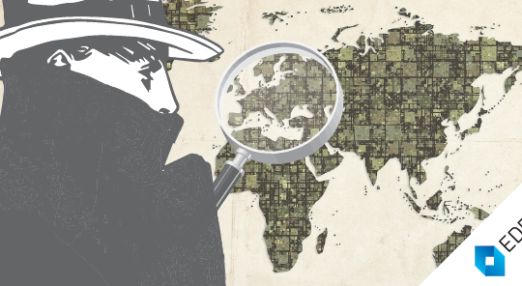
Wiretapping & data access by foreign courts? Why not!
After the European Commission published two new legislative proposals for law enforcement authorities to be able to reach across EU borders to have access to data directly from service providers, the EU Member States started working on this new “e-evidence” package. The proposal has so far become the object of wide-spread criticism from service providers, […]
Read more
-

Civil society calls for protection of communications confidentiality
On 31 May EDRi, Access Now, and Privacy International met attachés to the EU Council (representatives of EU Member States) who work on the ePrivacy Regulation proposal.
Read more
-

EU – Japan trade agreement undermines algorithmic transparency
The EU trade agreement with Japan undermines algorithmic transparency, Dutch EDRi member Vrijschrift wrote in a letter to the Dutch Parliament.
Read more
-

Litigation against the Danish government over data retention
Despite two rulings from the Court of Justice of the European Union (CJEU) in 2014 and 2016 against general and undifferentiated (blanket) data retention, a majority of EU Member States still have national data retention laws in place. Denmark is one these Member States.
Read more
-

ePrivacy for Children: What is Data Protection Culture?
The General Data Protection Regulation (GDPR) attracted widespread attention and comment in recent weeks when it came into force on 25 May 2018. Having taken several years to get from being proposed by the European Commission to entering into force, the GDPR has been designed as a concerted, holistic and unifying effort to regulate personal […]
Read more
-

EDRi’s leadership transition: Back to the future…
Challenges to digital rights will not decrease – on the contrary, the speed with which technology is integrating into every part of our lives is making it increasingly difficult to ensure that rights and freedoms are respected from the outset.
Read more
-
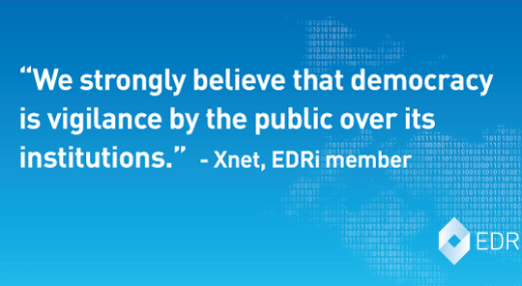
Xnet: Opposing guarded access to institutional information
Xnet brought up questions about the compliance of the Spanish Data Protection Agency's work with the new Data Protection Regulation.
Read more
-
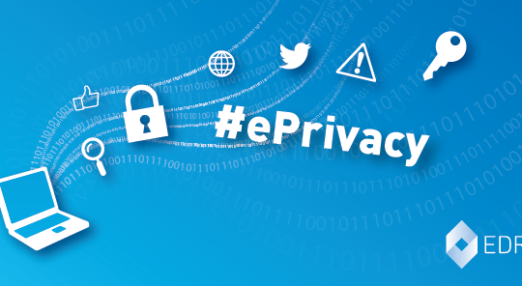
Your ePrivacy is nobody else’s business
The right to privacy is a fundamental right for every individual, enshrined in international human rights treaties. This right is being particularly threatened by political and economic interests, which are having a deep impact on freedom of expression, democratic participation and personal security.
Read more
-
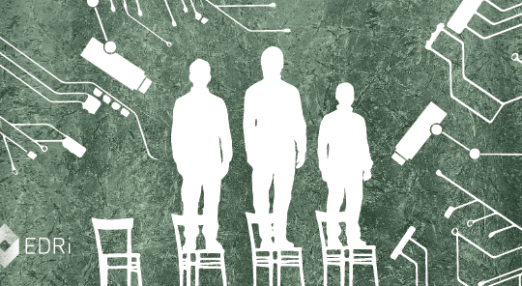
Gesellschaft für Freiheitsrechte: Legal challenge against Bavarian Police Act
EDRi observer Gesellschaft für Freiheitsrechte (GFF) is preparing a joint constitutional complaint to be brought before the German Constitutional Court against the newly passed Bavarian Police Act (PAG)
Read more
-
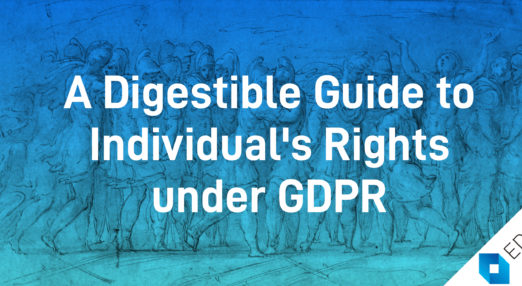
A Digestible Guide to Individual’s Rights under GDPR
The General Data Protection Regulation went into effect on May 25th and Privacy Policy updates have been flooding inboxes. GDPR enhances everyone’s rights, regardless of nationality, gender, economic status and so on. Unfortunately, the majority of individuals know very little about these rights and GDPR at large.
Read more
-
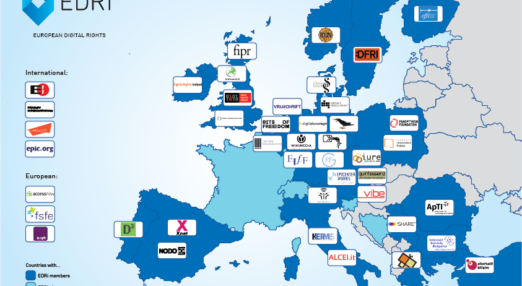
EDRi’s leadership transition: Looking back at our victories
EDRi is not one person. EDRi is not one office. EDRi is 39 organisations, mostly volunteer-run. EDRi is sweat and stress, frustration and success. Most of all, EDRi is 15 years of successes made possible by an immensely passionate network. And this network is now looking for a new Executive Director.
Read more
